There is always a debate
There is always a debate between heat pump vs. furnace and which one is better for your home. When it comes to heating your home, there is some variety in the appliances that you can choose from. Heat pumps and furnaces both heat your home but in very different ways. Both appliances function differently on the basis of installation cost, energy efficiency, air quality, cold weather effectiveness, comfort, and life span. We are here to talk about today what the difference between the two is in hopes that it can help you navigate your next heating system purchase.
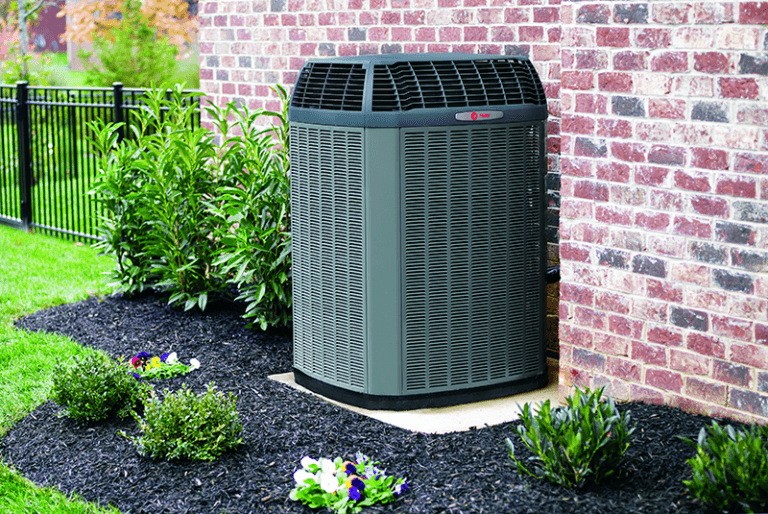
The heat pump works using a compressor that circulates and then absorbs heat. Even when it is cold outside, heat energy is still circulating in the atmosphere. The heat pump works to transfer the heat energy to the interior which warms the air and begins to act like a furnace. It also works the other way around when it is hot outside. The heat pump extracts heat and humidity from the home and transfers it outdoors to cool the interior. We offer Trane heat pumps that work to both heat and cool your home.
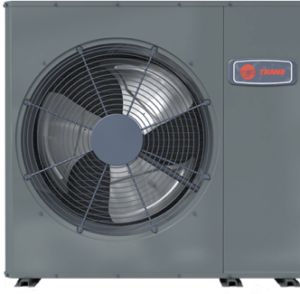
At Johnson’s HVAC, we offer two different types of furnaces to accommodate the needs of our clients. These two different types of furnaces include oil and gas. A furnace, as part of a central heating and cooling system, converts fuel into cozy heat that’s then delivered throughout your home. All furnaces consist of four main components: 1) burners that deliver and burn fuel, 2) heat exchangers, 3) a blower, and 4) a flue that acts as an exhaust for gaseous by-products. Depending on your situation, region, and needs, you can choose from heating systems running on either gas or oil as fuel.
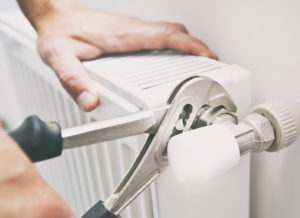
Determining Factors:
Installation Cost: The overall installation cost of your furnace or heat pump depends heavily on your home’s compatibility and current system setup. For instance, some homes may not have access to natural gas, making an air conditioner and furnace installation a more expensive alternative to a heat pump system. Alternatively, homes that are not wired for the supplemental heating associated with a heat pump system may incur additional costs. Your dealer is an excellent resource for determining which system(s) are best for your home and can help further explain these installation costs.
Energy Efficiency: Under ideal conditions, a heat pump can transfer 300 percent more energy than it consumes. In contrast, a high-efficiency gas furnace is about 95 percent efficient. Heat pumps are powered by electricity, so you can save substantially on fuel consumption. It’s over 100 percent efficient in various temperate climates and can serve as both a heater and air conditioner.
Air Quality: The same Indoor Air Quality (IAQ) considerations can be made for both your heat pump and gas furnace system. Products such as a whole-home air cleaner or fresh air ventilator are great options when it comes to maximizing your home’s air quality!
Cold Weather Effectiveness: A gas furnace burns fuel so it can generate heat on the coldest days. If the outside air temperature routinely falls below freezing, a heat pump may have a hard time generating enough heat to keep your home warm. Supplemental systems are available to work in tandem with your heat pump and kick in on the coldest days. Unfortunately, these systems use a lot of energy — canceling out the energy-efficient benefits if used too often. A dual fuel system can handle both mild and below-freezing temperatures, switching between heat sources depending on the outdoor temperature and home heating needs.
Comfort: In general, the air from a heat pump isn’t as hot as what you get from a gas furnace. It’s still warming your home, but it “blows cooler.” Some people don’t like that. In contrast to the hot and dry air of a furnace, heat pumps circulate air that’s naturally humid — so they won’t dry out your skin as much as the heat of a furnace.
Life Span and Maintenance: A gas-fired furnace generally has a longer lifespan than a heat pump. Furnaces with proper maintenance can last 20 years or more. A heat pump, like an air conditioner, more commonly has a lifespan of 15 years. Since the heating elements of a gas-operated furnace are only used for a few months out of each year, the maintenance requirements are less than those for a heat pump. A gas-fired furnace also has fewer mechanical parts than a heat pump, meaning fewer things that can break down or malfunction.
The bottom line
When deciding heat pump vs. furnace, your best resource for choosing the ideal heating solution for your home is Johnson’s HVAC. We are your local Trane Comfort Specialist. You’ll get a customized recommendation based on your preferences and the specific needs of your home.

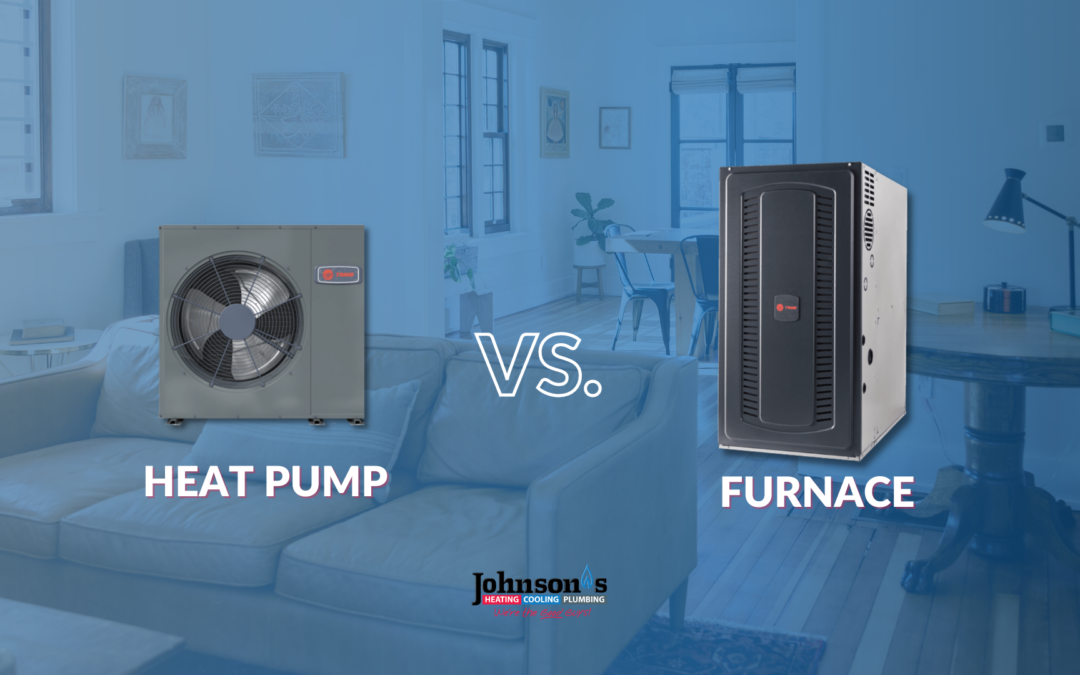
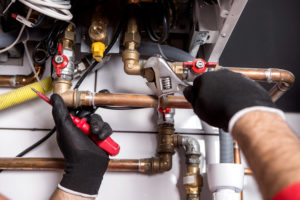

Recent Comments